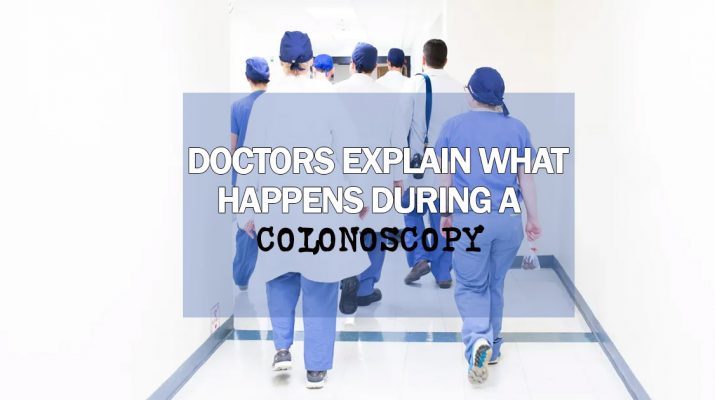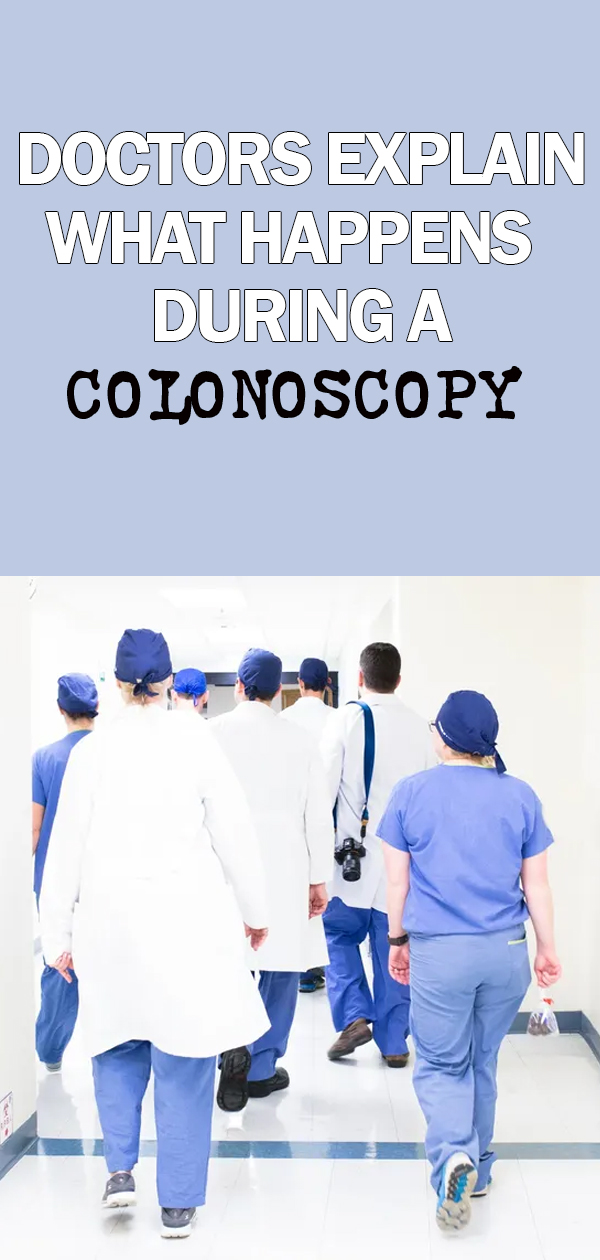Let’s start with a definition of colon cancer. This hallmarks of this form of cancer are tumorous growths that form in an individual’s large intestines. Also, please note that it is the third most commonly diagnosed form of cancer in America. Anatomically, the colon is the large intestines.
The colon is a part of the gastrointestinal tract that the body uses to rid itself of water, salts, solid waste, and other toxins. Once they have passed through the large intestines, these substances evacuate through the anus. In this article, we will explore the etiology of colon cancer and how early diagnosis and treatments can save your life.
How Common Is Colon Cancer?
According to the American Cancer Society, there were nearly 100,000 newly diagnosed cases of colon cancer in 2017. In many cases, this cancer often co-occurs with colorectal cancer, a type of cancer that forms in the rectum. According to several studies, those who are age 50 and over are at the highest risk for developing colon or colorectal cancer.
For this reason, physicians will often advise individuals in this high-risk group to schedule regular cancer screenings, namely a colonoscopy. For those who may not be familiar with colonoscopies, they are endoscopic examinations of the large and small bowels.
The procedure entails using a CCD camera, a medical imaging system, or a fiber-optic camera attached to a flexible tube. In either scenario, the physician will use these devices to identify polyps (abnormal tissue growth) in the intestines and the anus.
Symptoms Of Colon-Related Cancer
Whether an individual has developed colon or colorectal cancer, they will be confronted with a myriad of symptoms, some of which include
- Abdominal pain
- An unyielding urge to defecate
- Constipation
- Diarrhea
- Pain while defecating
- Loose stool
- Rectal bleeding
- Fatigue
- Weight loss
- Unpredictable stool consistency
Along with these symptoms, it is not unusual for some individuals to also develop irritable bowel syndrome (IBS), a disorder that affects the large intestines. And the symptoms do not stop there as many individuals with colon-related cancer will also become iron deficient, which can lead to anemia. Also worth noting, if colon-related cancer metastasizes to other parts of the body, it can trigger even more symptoms. On that note, the liver is one of the places that colon-related cancer will spread to first.
Stages Of Colon And Colorectal Cancer
Before detailing how colonoscopies can help reduce the risk of colon and colorectal cancer, let’s take a look at the 5 stages associated with these two forms of cancer:
Stage 0 – In this stage, cancer is localized, meaning it has not spread beyond the innermost layer of an individual’s colon.
Stage 1 – At this point, colon-related cancer has spread to neighboring tissue; however, it has not metastasized to other organs.
Stage 2 – At this point, colon-related can cancer has traveled beyond the outermost layers of the colon; however, it is still very much contained within the colon.
Stage 3 – This stage of colon-related cancer is slightly more severe in that it has spread beyond the outermost layer of the colon, reaching 1 of 3 lymph nodes.
Stage 4 – Even more severe than stage 3, stage 4 indicates that colon-related cancer has metastasized beyond the colon and has made its way to other organs like the liver, for example.
How Regular Colonoscopies Can Minimize Your Risk Of Developing Colon-Related Cancer
Before an individual ever develops colon-related cancer, they will first develop polyps in parts of their gastrointestinal tract. For those who may not be familiar with them, polyps, similar to cancerous tumors, are abnormal tissue growths that often resemble flat bumps. To prevent polyps from evolving into cancer, an oncologist will remove them, usually surgically. That said, confirming the presence of polyps will require that a patient undergoes a colonoscopy.
What To Expect During A Colonoscopy?
If you’re in a high-risk category, meaning you’re age 50 or over, genetically predisposed to the disease, or meet other criteria for developing the disease, a colonoscopy procedure can potentially save your life.
The procedure typically lasts anywhere from 30 to an hour. And, doctors will issue one of many sedatives, such as diazepam, diphenhydramine, or promethazine, to help the patient relax.
From there, the patient lies on the examining table on their left side. At this point, the physician will use a CCD camera or a colonoscope, a fiber-optic camera affixed to a flexible tube to look for polyps and other abnormal growths.
What You Should Know About A Colonoscope
While a CCD camera is effective, colonoscopes are preferred by most physicians. The flexible tubular instrument, which measures roughly half an inch in diameter, provides physicians with an excellent image of the lining of both the upper and lower gastrointestinal tract. This device is inserted into the patient’s rectum and can be moved throughout the large intestine due to its flexibility.
Are Colonoscopies Painful?
Doctors administer sedatives ahead of the procedure. Thus, most patients will not experience any significant pain or discomfort during a colonoscopy. However, as the device moves along inside the colon, some report feeling a cramping sensation.
Patients may ease the cramping by taking deep breaths and slowly exhaling. At the end of the exam, the physician will carefully pull the colonoscope from the patient’s rectum as they continue to review the lining of the bowels for polyps and other abnormalities.
Are Colonoscopies Safe?
If you have any trepidations about undergoing a colonoscopy, you should that these procedures are not only safe but also go a long way toward protecting you against this colon and colorectal cancer. With that, patients should advise their physician if they have any of the following conditions:
- Pregnancy
- A heart or lung condition
- You have medication allergies
- Diabetes (type 1 or type 2)
- Taking anticoagulant medications
It is also worth noting that many physicians will instruct patients to take antibiotics ahead of their procedure if they recently underwent a dental procedure or have been fitted with an artificial heart valve.
What Happens If The Physician Discovers Polyps Or Other Abnormalities?
Unfortunately, during a colonoscopy, the physician may identify polyps, tumors, and other signs of colon or colorectal cancer. In these cases, the doctor will request a biopsy to confirm whether or not the patient has either of these two forms of cancer.
For those who may not be familiar with what a biopsy entails, it is a medical test whereby a surgeon, interventional radiologist, or cardiologist will surgically remove sample cells or tissue to examine them and confirm whether or not they are cancerous.
What To Expect Following A Colonoscopy-Related Screening
Not surprisingly, a colonoscopy procedure can be very taxing on the body. Thus, most physicians will advise patients to remain in the medical facility for at least 30 minutes post-screening. Some of the most commonly reported symptoms following a colonoscopy-related screening include
- Continued cramping
- Feeling bloated
While rare, some individuals may experience excessive bleeding, fevers, and severe abdominal pains following these procedures. If this occurs, patients should advise their physicians immediately.
What Should You Do Ahead Of Colonoscopy-Related Cancer Screening?
Before undergoing a colon-related cancer-screening, there are a few things that patients will need to do first. Some of those include the following:
- Limiting their intake of solid foods
- Taking oral laxatives as advised
You should also to arrange to have a friend or family member drive you home after the exam. That’s necessary because the effects of the sedatives will take some time to wear off.
What Is The Survival Rate Of Colon-Related Cancer?
The benefit of colonoscopies allowing physicians to identify and treat colon-related cancers before they spread to other areas of the body. Of course, this early detection ups the chance of surviving this form of cancer is quite high. According to cancer.net, an online resource for comprehensive cancer information, the 5-year survival rate for localized colorectal cancer is an astounding 90 percent.
The 5-year survival rate for other stages of colorectal cancer is 65 percent. In short, the earlier doctors catch the presence of colon-related cancer, the sooner they can order treatments.. And the sooner patients receive treatment, the better their chances are of surviving the disease.
Don’T Dread The Colonoscopy: It May Save Your Life
Although the thought of undergoing a colonoscopy-related cancer screening may seem off-putting, it is the best way to protect yourself against colon-related cancer, which can be life-threatening.


